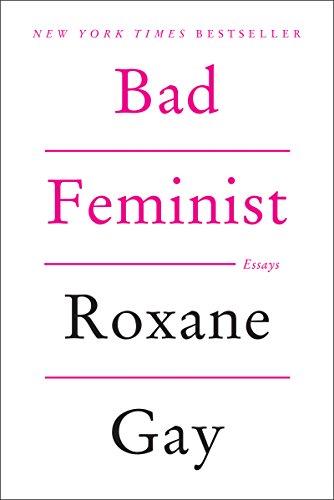“I try to keep my feminism simple. I know feminism is complex and evolving and flawed. I know feminism will not and cannot fix everything.”
~Roxane Gay
I recently read Bad Feminist, a book of funny and wise essays by Roxane Gay that puts out a very compassionate view of feminism, one that takes feminism off its pedestal and places it on a cozy bed instead, treating it like a friend who should be loved and accepted, warts and all.
Gay tells you why it is okay to not be a perfect feminist because, in reality, there is no such thing. Instead, she owns up to the label of ‘bad feminist’ saying how it allows her to be human, to be messy and to not know answers to everything while continuing to fight for what she believes in.
She points out that feminism is a choice, one that a woman may or may not want to make. And even if she decides not to be a feminist, it is the responsibility of feminists to fight for her rights; to guard her choices, even if her choices are different from theirs. Women all over the world deserve equality, they deserve freedom, but no one can tell a woman what her equality and freedom should look like. That is only for her to decide. Take, for instance, the general stance against burkas. There are women who choose to wear a burka. Now by asking them to take it off because it does not resemble the Western idea of freedom that you believe in, aren’t you subjugating their freedom of choice, thereby contradicting the very foundation on which feminism stands?
The same argument applies if a woman decides to take her husband’s name, if a woman chooses to be a homemaker and/or if a woman decides not to study after a certain point. As Gay puts it, “The problem is not that she makes herself economically vulnerable in that choice; the problem is that our society is set up to make women economically vulnerable when they choose.”
In Bad Feminist, Roxane also makes you question the notion that there is an essential feminism, one true feminism to govern all of womankind. She rejects mainstream feminism because it has, historically, neglected women of colour, queer women, transgender women and women in the working class. It has placed the needs of white, middle- and upper- class straight women over the needs of the rest.

Roxane Gay
Bad Feminist
Harper Perennial, 2014
However, she mentions that even though mainstream feminism falls short of her expectations, she reminds herself that feminism is a people’s movement, and people are essentially flawed. She says, “People do terrible things all the time, but we don’t regularly disown our humanity. We disavow the terrible things. We should disavow the failures of feminism without disavowing its many successes and how far we have come.” Accepting the flaws of the movement allows Gay to continue fighting misogyny, institutional sexism, inequity in pay, repeated attacks on a woman’s reproductive freedom, violence against women, among other vices of patriarchy.
By acknowledging that some of our interests and/or opinions are not in line with mainstream feminism, Gay says that we give ourselves some space to breathe, the space where we can confess our flaws too, instead of pretending to be the perfect guardians of a perfect feminism. For example, in her TED Talk, Gay tells her audience,
“When I drive to work, I listen to thuggish rap at a very loud volume. Even though the lyrics are degrading to women, these lyrics offend me to my core – the classic Yin Yang Twins song “Salt Shaker” – it is amazing. I am utterly mortified by my music choices.”
By announcing that we are ignorant, we encourage ourselves to acknowledge our imperfections. Rather than justifying our choices, we begin to become more accountable for them, which in turn, paves the way for better choices. We start changing the channel when a misogynistic song comes on, we stop dancing to item numbers when they are played at weddings and we stop going to movies that treat women like decorative pieces or think of sexual harassment as a sport. We get inspired to read and to get further educated in feminist literature rather than claiming that we are already well versed in everything about the movement.
By making it easier for more people to embrace feminism, Gay aspires to a more inclusive feminism. As she puts it:
“We don’t all have to believe in the same feminism. Feminism can be pluralistic so long as we respect the different feminisms we carry with us, so long as we give enough of a damn to try to minimize the fractures among us.”

